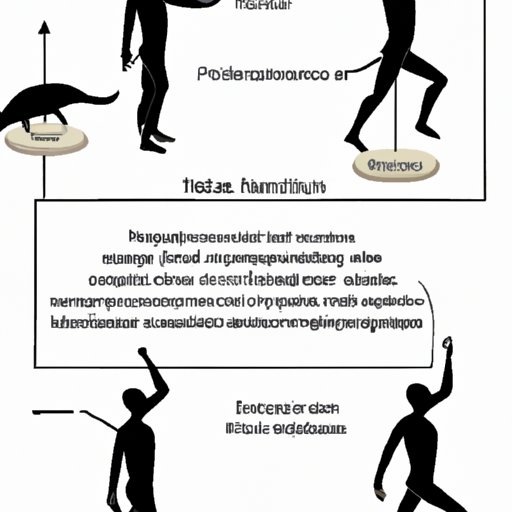Introduction
Predators play an important role in the balance of nature, but what does predator mean in science? In ecology, a predator is an organism that hunts, kills, and consumes other organisms, known as prey. This type of interaction is known as predation and can be found in almost every ecosystem on Earth. Many species of animals are classified as predators, including mammals, birds, reptiles, amphibians, and even some types of insects.
The Role of Predators in Ecosystems
A healthy ecosystem relies on a complex network of relationships between different organisms. Predators are key players in this system, as they control the population of their prey by hunting and killing them. By keeping their prey’s population in check, predators help maintain a balance between the different species in an ecosystem. For example, if there were too many deer in a forest, the plant life would suffer from overgrazing. But with predators like wolves and mountain lions to keep their numbers in check, the plants have a chance to thrive.
Exploring the Behavioral Patterns of Predators
The behavior of predators can vary widely depending on the species and the environment they live in. Some predators are solitary hunters, while others hunt in packs or cooperate in groups to take down larger prey. They may also employ different strategies to capture their prey, such as stalking, ambushing, or chasing. To maximize their chances of success, predators often use camouflage or deception to get close to their prey without being noticed.
Examining the Impact of Human Activity on Predator Populations
Humans have had a significant impact on predator populations around the world. Hunting, poaching, and habitat destruction have all contributed to the decline of many species of predators. In addition, the introduction of invasive species can disrupt the natural balance of an ecosystem, leading to an increase in the number of prey and a decrease in the number of predators. As a result, some species of predators have become endangered or extinct, which has had a ripple effect on the overall health of the ecosystem.

How Predators Adapt to Survive in Their Ecosystems
In order to survive in their ecosystems, predators must be able to adapt to their changing environment. Through millions of years of evolution, they have developed certain characteristics that allow them to thrive. These include powerful senses, sharp teeth, and strong claws that enable them to hunt and kill their prey.
Investigating the Evolutionary History of Predators
The evolutionary history of predators can be traced back millions of years to the first carnivorous organisms. Over time, these organisms evolved into more complex forms, eventually giving rise to the modern predators we see today. Through natural selection, these predators developed the physical and behavioral traits necessary to survive in their ecosystems.
Examining the Anatomy and Physiology of Predators
The anatomy and physiology of predators can vary greatly depending on the species. For example, cats have sharp claws and teeth for tearing flesh, while hawks have powerful eyesight and wings for hunting from the sky. Each species of predator has adapted to its environment in unique ways, allowing it to survive and thrive in its ecosystem.
Conclusion
Predators play an important role in maintaining the balance of nature. Their behavior, evolutionary history, and anatomy and physiology all contribute to their ability to survive in their ecosystems. However, human activity has had a damaging effect on predator populations, leading to the decline of many species. It is important that we work to protect predators and their ecosystems so that they can continue to thrive.
(Note: Is this article not meeting your expectations? Do you have knowledge or insights to share? Unlock new opportunities and expand your reach by joining our authors team. Click Registration to join us and share your expertise with our readers.)
